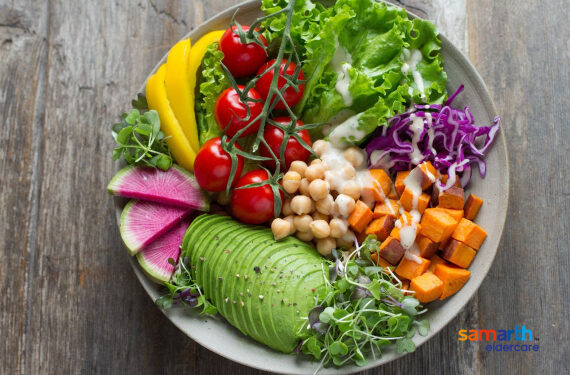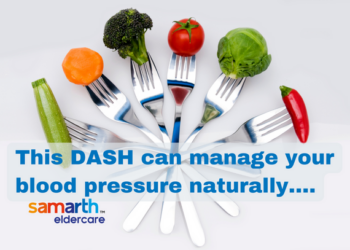We are what we eat, and we have diets for all possibilities. Diets to gain or lose weight, boost immunity and stay healthy, a heart-friendly diet, a diabetic-friendly diet, a vegan diet, a vegetarian diet, and so on. But, have you heard of a MIND diet, one that helps boost your cognitive capabilities? Indeed, it is not a cooked-up fad; there is a legit diet called the MIND diet, one that can delay the cognitive decline that happens due to Alzheimer’s disease. While research continues on this diet and its link to Alzheimer’s, conclusions so far show it does help prevent or delay the disease. Let’s see what it means and what it does to help.
What is it?
MIND stands for Mediterranean-DASH Intervention for the neurodegenerative delay. It is a hybrid offshoot of the two popular diets, the Mediterranean diet and DASH (Dietary Approaches to Stop Hypertension). The core focus of the MIND diet in both of these is to suggest foods that help boost cognitive capabilities. The evidence from scientific research concludes that this diet can reduce the risk of developing dementia or slow down the cognitive decline that aids it. This diet was developed based on studies on the dietary connection between food and cognitive decline and derived from the two plant-based diets mentioned above.

Join Now >
What does it entail?
Predominantly, the MIND diet focuses on plant-based foods and advises reducing animal-based, processed, and saturated foods. It also requires you to limit foods with added sugars and recommends you follow the portion control formula. It advises you to consume more green leafy veggies and berries. It proposes that you focus on eating foods from 10 groups and avoid or limit foods from five groups.
The ten food groups to focus on are:
- Green leafy veggies like spinach, kale, lettuce, etc. Minimum 6 servings per week.
- Other veggies – Minimum two or more servings per day
- Nuts such as almonds, cashews, and pistachios – Minimum 5 servings per week
- Berries such as strawberries, blueberries, blackberries, etc. – Minimum 2 servings per week
- Beans like black beans, kidney beans, etc. – Minimum 4 servings per week
- Whole grains such as Quinoa, brown rice, oatmeal, etc. – Minimum 3 servings per day
- Seafood such as Salmon, Mackerel, Herring, Tuna, Trout, etc. – At least one serving per week
- Poultry such as Chicken and Turkey – Minimum two servings per week
- Use Olive oil for cooking
- Drink one glass of wine per day
Foods to avoid or limit are:
- Red meat like steak, ground beef, pork, lamb- Limit to 4 servings per week.
- Butter and margarine- Limit to 1 tablespoon daily.
- Cheese/Paneer– Limit to1 serving per week.
- Sweets and pastries – Limit to 5 servings per week.
- Fried or fast foods such as French Fries, Nuggets, Kebabs, Samosas, Kachoris, etc. – Limit to 1 serving per week.
How does it help the brain?
The food groups in focus in the MIND diet are rich in fibre sources and packed with brain-health-boosting nutrients. They mostly contain Vitamin E, folate, flavonoids, Omega-3 Fatty acids, and Carotenoids. All these are supposed to lower your chances of age-related and other forms of cognitive decline. Some studies have even shown that focusing on such foods and avoiding and limiting foods as suggested in this diet can slow the ageing of the brain by 7.5 years. A specific study on the MIND diet group showed that the chances of developing Alzheimer’s disease were reduced by 53%. Even moderate MIND diet followers benefitted by their odds dropping by 35%.
Research has shown that regular physical exercise also reduces the chances of developing Alzheimer’s by 50%. Even though the MIND diet does not talk about physical exercise, you can combine it with some regular exercise for the best benefits. The MIND diet isn’t highly restrictive, unlike other weight loss diets. Most foods other than those in focus groups are allowed in moderation. Also, these foods are easily available, easy to cook at home, and not expensive for regular consumption. Thus, overall, there are a lot of benefits to be gained from following the MIND diet.











